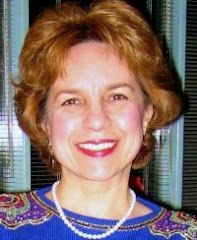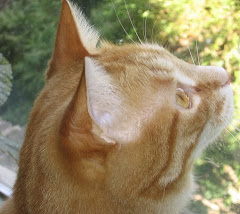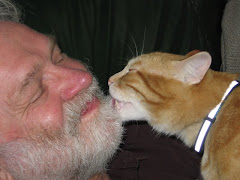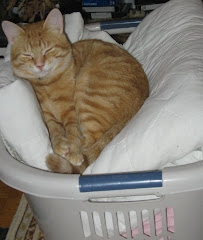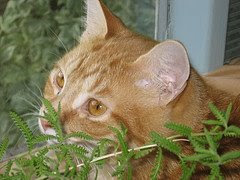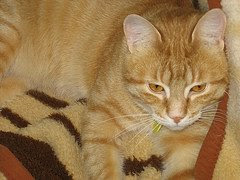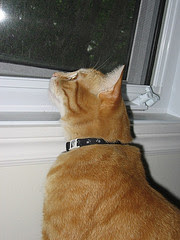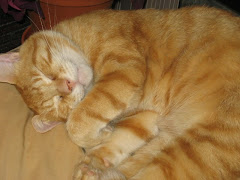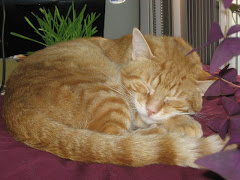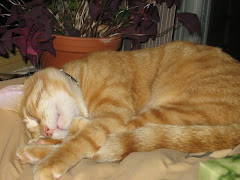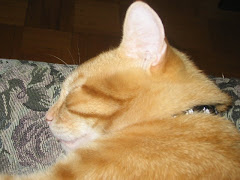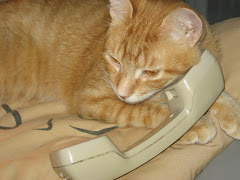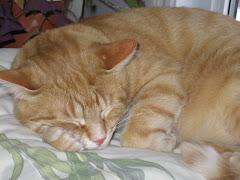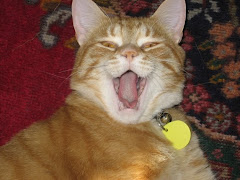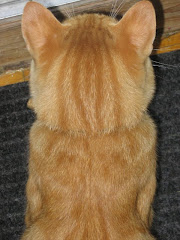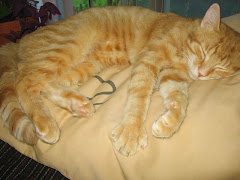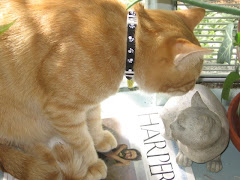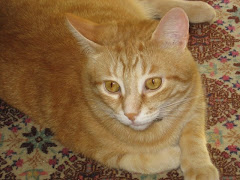

Romancing Romeo
Story and Photos
by:
Füsun Atalay
Copyright © 2005
For John Spencer, who operates a successful B&B in Hawkesbury, NS, as his livelihood, flying is a passion and a dream he wanted to realize ever since he was a boy of six when he saw a Cessna 185-9 float on the beach in his native Marystown. He never forgot how fascinated he was by the high plane with the large wings, and ever since then he promised to fly one day himself.
It would take several decades for John to come close to his dream of even owning his own plane. When he remembers Wabash, Labrador in 1982, and the major downsizing in Iron Ore that caused his lay off, he believes that many things in his life happened by chance towards making his dream come true.
Unemployed and with a young family, he decided to seek his fortune outside of Newfoundland and decided to go to Cape Breton where his parents had settled earlier. But as fate would have it, John's fortune was already waiting for him in the form of an advertising sing for a gas station for lease at the Big Harbour turn off, ten kilometres off Bedeck, Nova Scotia.
A man of man talents, John had taken an automotive trade in Happy Valley, Goose Bay in ‘81-82. So, within a week of leaving Newfoundland, he was operating Spencers' Irving and working hard to make it a success. Seven years later, having added a towing service and an auto selvage yard to his station, he felt it was time to move unto other ventures.
Before settling on their B&B, he operated several other businesses, but it was the B&B that afforded him the leisure of time and attention he can devote for his Piper Tomahawk on wheels, the object of his childhood dreams.
"Running a B&B is not a round the clock,365 days a year job," admits Spencer in his affable, gregarious manner. "It allows me time to fly whenever there’s good whether."
C-GRVK is the name given at the time of its registration, but to Spencer, the single engine Piper Tomahawk is better known as Romeo Victor Kilo, the call sign by which it can be identified anywhere in the world.
Romeo Victor Kilo had been operated by the Moncton Flight Centre since1979 as a new plane among one of their fleet of twenty. But even after it was put out of commission, it was kept as a certified airplane which meant that it was inspected and maintained in the same way as the others that were in use.
"They kept them all for their parts," says Spencer. "They had a fleet of twenty and stayed with a few, using the parts from the others to maintain the planes until they got just down to five."
"When I bought it in 1991, it really looked bad in the interior and the exterior. Un-matching doors, lots of trim, plastic and paint missing. I had to think of it as a winter’s project."
The plane was kept in an Airmax Hangar at Hawkesbury Airport, and it was Al McDonald, who assisted John with the repairs needed to get Romeo back into the skies with pride again.
McDonald is not only the director of the flight instruction school in Port Hawkesbury, but he is also the qualified AME (Airplane Mechanical Engineer) who performs the annual inspections before planes can be certified to fly.
Having received his private pilot’s licence in 1957, McDonald has been around for a while, and he’s used to flying around the sea in bush planes.
"I used to fly bush planes in winter when boats couldn’t come ‘round because of ice on the north side. So stuff used to be delivered by planes," he recalls, "even to Bull Island (?) and Ungava Bay."
Unfortunately no one in his family shares Spencer’s enthusiasm for flying, except for his seventy year old father who loves to accompany his son but cannot do so often because of the distance that sets them apart.
That does not deter Spencer from going up by himself every chance he gets.
"I’ve never been so much interested in the flying activity itself," he says, "but it was the ability to get way up there and see everything from above. I used to think how wonderful that would be to see everything like you were a bird."
Flight depends mostly on weather conditions, but he manages to average about one hundred hours a year.
"Flying provides an opportunity to meet interesting people- it’s like a brotherhood of pilots," he says. "All of us, from different walks of life, share an interest in flying and get together to organize activities."
He and wife Sharon like to attend fly-in breakfasts held every Saturday morning at various locales such as
Stanley between Windsor, NS, or Debert, an old military base. Although these fly-in breakfasts are held between May and December, because of their commitment to the B&B, the Spencers cannot participate until the end of tourist season in October.
"A lot of fly-ins promote flight safety," admits Spencer. Usually a qualified speaker from Transport Canada gives a seminar on safety, based on a recent flight-related accident and how it could have been avoided. With the audience from the fly-in breakfast and other listeners trickling in from the area these seminars, according to him, can be well-attended packing in a few hundred at times
Spencer, himself, is a reliable and seasoned pilot. His training includes dual and single hours required for a pilot’s licence as well as additional training for night rating.
He goes through an intense check list before even setting foot into the plane.
"If you don’t read the check list, you often forget something," he says jokingly as he goes through the pre flight check of all control surfaces, hinges, lights, control pads, hinge pins, oil, fuel, lose belts and properly secured wires, making sure nothing will fall.
Then he checks for water in the fuel, pointing that there are two fuel tanks on each part of the wing. "Each tank has a water drain- if there’s water, it’ll collect in the drain. Then you drain all the drain cocks and you’re fine," his voice carries the assurance of someone who knows what he is doing.
He checks the tail lights as he admits that he doesn’t go far. "Usually to places where there’s no landing fees like Summerside or Cable Head, PEI."
Once the pre flight check is complete and we are safely strapped in the two-seater that has been heating like an inferno under the afternoon sun, Spencer communicates by radio with the airport to establish the altimeter setting, strength and direction of the winds, whether there’s any other aircraft in the area, and asks to be notified of local traffic.
Finally he informs the airport authority: "Port Hawkesbury traffic, Romeo Victor Kilo is taxying into position runway two-nine."
There’s no response from the other end. This means there’s no conflict and we can take off. Within minutes we’re airborne and, at an altitude of 1200 feet above Cape Breton, taking in the beauty of the small island from a bird’s eye view.
I glance sideways at Spencer. He is in control of his destiny and looks like he is in heaven doing what he wanted to do ever since he was a six-year-old boy growing up in Marystown. And one of these days, he will complete that dream by flying his Piper Tomahawk back home to the very same beach where he succumbed to the passion of flying.
"It’s just a matter of time now," he says. "And some continued good weather."
Copyrighted Material ~ Copyright © 2005 All Rights belong to Füsun Atalay

















